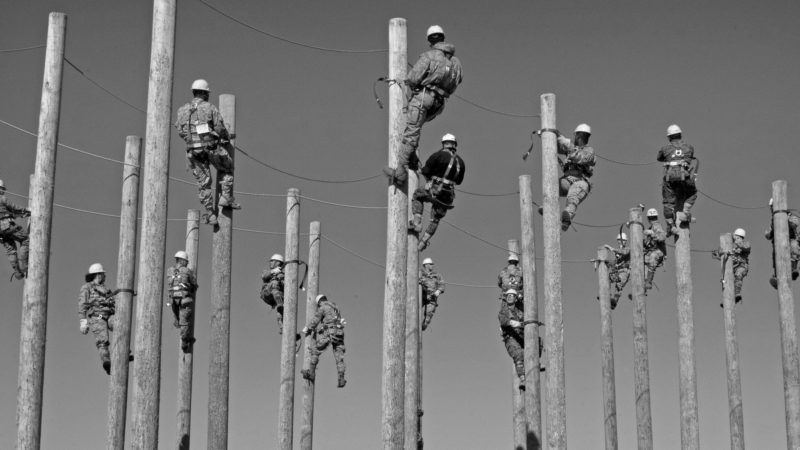
Despite its name and history, Labour has never had much to say about work. In previous times, it was assumed that public ownership and redistribution of income would emancipate the worker. Later, neither Tony Blair or Gordon Brown showed much interest in the quality of work, believing mistakenly that a knowledge economy was creating a multitude of high-scale, high-wage jobs. Now we know differently.
What of the current party leadership? The evidence is patchy. We’ve had Tom Watson’s future of work commission, but too much emphasis on the future leads to a lack of understanding and focus on the present. The official work futures debate has become ensnared and obsessed by the threat of automation, although there is no compelling evidence that a new wave of disruptive technological change is likely to lead to significant job losses in the medium term. Automation, as the OECD and many others have shown, is more likely to transform tasks than eliminate occupations.
The UK has near what passes for ‘full employment’, but far from fulfilling work. Under-employment is a major issue, with 14.6% of the UK workforce stuck in ‘involuntary’ part-time work, locking many into in-work poverty. At the same time, we also have an overwork problem, with one in ten wanting to work less, even for less pay, as well as widespread unpaid overtime and long hours.
Under-employment is part of the growth of labour market insecurity. A large minority (at least 20% of workers) experience chronic or acute labour market precariousness, ranging from poor conditions and pay to zero-hour contracts and multiple jobs. Importantly, many in the chronic category are full-time employees. However, it is worth keeping in mind that most work is not precarious, and most workers have positive attachments to aspects of their work. If the left narrative is confined only to gig work and zero-hour contracts, it is not speaking to the experience of the majority. There is a wider ‘good work gap’ characterised by stagnant pay, excessive work demands, declining autonomy blurring of work-life boundaries and punitive performance regimes in some sectors (for an overview, see here). The resultant widespread work strain and insecurity is evidence that the ‘good work gap’ is now between what work (as employers shape it) and what we want from work.
Taking these and other key trends into account, there is no single or simple job or work crisis. The contemporary economy faces a diverse set of challenges rooted in labour market deregulation, austerity, low-cost business models and finance-led growth. That requires policy responses that can simultaneously address under-employment and overwork, contractual insecurity and intolerable work pressures. One result of the Taylor Review into ‘modern working practices’ and the Tory push to appeal to working-class voters has been a limited acceptance of expanded employee rights. While the labour movement remains rightly sceptical of the government’s motives and capacity to deliver, we should welcome their stated commitment to be accountable for the quality as well as the quantity of jobs. Such a commitment could be useful leverage for labour organisations or a baseline for further action by a Labour government.
As indicated earlier, there are those on the left who say if there are so many ‘bullshit jobs’, why fight to save or change them? Why not accept the inevitability of automation and go for drastically less work and a universal basic income? This is a profound misreading of what is happening. It’s not the jobs that are bullshit (that is of no social value), it’s the bullshit in the jobs (the insecure contracts, the excessive work demands). Even setting aside the dangers of pessimism and passivity arising from a technologically catastrophist post-work agenda, to abandon the terrain of making work better is to ignore the experiences and betray the aspirations of the current and future workforce. Without a new workplace politics, the future of work will look like the present – but only if we let it.
This piece was commissioned by Labour Together, which is guest editing LabourList this week.




More from LabourList
Antonia Romeo appointed to lead civil service as new Cabinet Secretary
‘If Labour is serious about upskilling Britain, it must mobilise local businesses’
Stella Tsantekidou column: ‘What are we to make of the Labour Together scandal?’